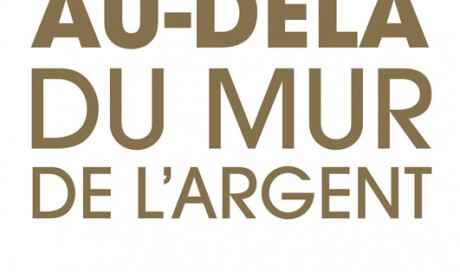- 88 Views
- 0 Comment
- No tags
Angela Merkel proposes to create a European network of communication to face the American quasi-monopoly of digital data exploitation. Finally, a unifying proposal for Europe!
For the first time in a long time, today in Paris, the French and German Council of Ministers’ agenda contains a complete proposal for partnership. The digital domain is without a doubt as important as the pooling of German coal and French steel resources in 1950 that gave birth to ECSC and then the European Union. Angela Merkel’s large coalition government recently came to the Council with a major proposition that we hope the French government will grasp. The proposal is the creation of a European network of communication, independent of the American industrial, military, and commercial internet network.
“We will discuss with France the way in which we can conserve a high degree of data protection […] It would be preferable to create a network of communication within Europe,” said Angela Merkel. She was inspired by her own personal history, the same as that of tens of millions of East Germans who experienced the GDR and the Stasi’s “socialist paradise on earth”. She is the European political leader with the greatest stake in controlling the ownership and usage of the personal data of 500 million European citizens. This property and exploitation has become the reserve of the American digital giants, the “GAFA” (Google, Amazon, Facebook, and Apple) but also Yahoo! and consorts. These giants know perfectly well what the European market means to them. Europe has a greater GDP than the United States, an open market, where the exploitation of personal data (a value of 1,000 billion euros from today to 2020, according to the Boston Consulting Group) is child’s play of which nothing can stand in the way.
Several recent examples demonstrate the willingness to steal without constraints, such as when the European Commission has attempted to craft a directive on the digital protection of personal data in Europe, as is the case for the past 20 months. In a few days, “GAFA” Lobbyists can draft more than 3,000 amendments at the European parliament. “Unheard of since the communal agricultural policy” reports this high French official, at the heart of the discussions. When the SARL Google France was caught again by the French tax authorities for an adjustment of 1 million euros at the end of 2012, Yahoo!, France SAS, and 93 employees decided delocalize in Ireland to avoid such a disagreement. “Catch me if you can!” The most recent example is Google TV and Netflix’s pillage on the French audiovisual front. If we let them, they will bring the cinema industry finances and French audiovisual production to their knees.
Angel Merkel, trained as an engineer, also knows that in the digital domain, the law is not enough if it not supported by economic capacities and a real industrial vision. Yet, France and Germany jointly have sufficient means to undertake and successfully complete such a task. They have leading firms, such as SAP, Capgemini, Deutsche Telekom, Orange; the most active incubators and start-ups in Paris and in Berlin; big schools and engineering universities that are leaders in mathematics, digital technologies, or neuroscience, from Humboldt University to Paris Polytechnic to name a few. Germany and France have everything that is necessary to challenge the complex American digital industry and demonstrate their preeminence in what will be in a few years, the essence of our economic riches, our defense capacities (cyber security), our way of life, and our health.
We have everything except a common political will. Yet, it cannot only come from Paris and Berlin. For historical reasons, Great Britain is the other large nation capable of taking on this challenge. Yet, it like other domains prefers to delegate its digital sovereignty to the United States, hoping naively to prolong their “special relationship” that existed in the past century.
The opposing arguments to the creation of a European network have started to come alive, such as “A new Galileo” which makes fun of the name of the delayed and costly European GPS system project. Those who are afraid of separating the global network also warn of the risks of balkanization. Without a doubt these risks exist. Yet, how do we face the reality of the American neocolonial plunder of our European economies and societies?
We thus hope that the Council of French and German Ministers, in addition to having the German willingness to advance on the strategic, but usual European issues, that of Defense or “Airbus” untraceable energy, will work on developing a memorandum of understanding on the network of European sovereign communication. This would be a strategic agreement for the security of Europeans and would also create jobs and provide future resources on the European continent.
OUR RECENT
WORKS
-
20000 Milliards de…Book
Warning: Invalid argument supplied for foreach() in /home/edouardt/www/wp-content/themes/edtetreau/includes/part-portfolio.php on line 54
Warning: Invalid argument supplied for foreach() in /home/edouardt/www/wp-content/themes/edtetreau/includes/part-portfolio.php on line 54
Warning: Invalid argument supplied for foreach() in /home/edouardt/www/wp-content/themes/edtetreau/includes/part-portfolio.php on line 54








